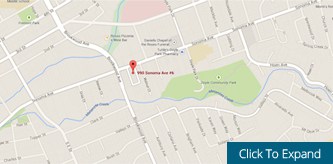If your tooth is in very poor condition, it may be necessary for a tooth extraction to prevent any further damage to your gums and surrounding teeth.
Dentists remove teeth for many reasons. Your teeth may be rotten and cannot be repaired. Or, you may have advanced periodontal disease. Or, maybe your teeth are not properly positioned in your mouth, which is usually what occurs when teeth are impacted.
Sadly enough, extracting even only one tooth can cause problems for you in the future. It can hinder your ability to chew food. It can also cause jaw joint problems, and make your teeth shift out of position even more. These are all things that can negatively affect your dental health.
Some dentists will suggest other dental procedures that could possibly save your tooth. This would avoid the problems that are associated with tooth extractions.
What Happens During a Dental Extraction?
First, the dentist will use a local anesthetic to get rid of the feeling around your tooth, gums and jawbone. Although the procedure will not hurt, you will still feel a lot of discomfort and pressure. This is because the dentist is trying to jiggle the tooth so that it is easier to remove from the tooth socket.
This isn’t painful because the anesthetic numbs the tooth nerves. Unfortunately, it has no effect on the nerves that make you feel pressure. However, if you feel more than pressure during the extraction process, inform your dentist immediately.
Tooth Sectioning
Sometimes a tooth has to be sectioned during a dental extraction. This is a normal procedure that dentist sometime perform. It takes place whenever a tooth is too hard to remove, or the roots are positioned in a manner where the socket won’t open wide enough to get the tooth out. The dentist has to cut the tooth into sections and take them out one by one.
Post-Extraction – What to Expect
Once your tooth has been removed, it has to form a blood clot. This will stop the flow of blood and help your tooth to heal. For about thirty five to forty minutes after the extraction, you should put a piece of gauze in your mouth and bite down hard. Continue doing this until the bleeding stops completely.
Once the blood clot forms do not touch or agitate it. The following things should not be done for at least 72 hours after tooth extractions because they will remove or disturb the blood clot:
- Rinse your mouth
- Suck on a straw
- Smoke tobacco
- Drink alcohol
- Brush your teeth
In addition, do not perform any energetic exercises for at least the first 24 hours once the tooth has been removed. Doing so will increase your blood pressure, which will negatively affect the blood clot.
Once your tooth is removed, you might still feel pressure or a little pain. However, this can be remedied with an ice pack. This should deter the pain and keep down the swelling. If there is any swelling, it should go away after 48 hours.
After a tooth extraction, you’ll need to consider options for restoring the new gap in your mouth. A tooth serves the purpose of supporting the neighboring teeth; when a tooth is missing, the adjacent teeth may shift to fill the gap, thus causing additional problems later on. Dental implant surgery is typically the ideal follow-up procedure following a tooth extraction.
You may have to ask your dentist to prescribe a pain killer. Make sure you take all mediation according to the directions. If the pain medicine does not take away the pain, then please call your dentist. If you have a prescription for antibiotics, then please take it until it runs out, even if you aren’t feeling anymore pain. On the day of your dental extraction, make sure that you drink plenty of liquids. Also eat only soft foods. Once the pain eases up, you can go back to your normal eating routine.
You can also go back to your regular dental routine about 24 hours after a dental extraction. This is very important. Brush and floss your teeth daily. Not only will this make your mouth cleaner and fresher, but it will help your mouth to heal faster.
You should be able to go back to your normal lifestyle after a couple of days. However, if there is still a considerable amount of blood flow, or if there is pain, swelling, or a bad reaction to your medication, please call your dentist at once.
Great friendly staff and the ultimate in cutting edge dental technology. Everyone on the team from Angel at the front desk to Bonnie and Dr. Frey- all know exactly what's going on pertaining to your personal case. Had 2 crowns put on implants in the last 2 years and the results are amazing. Thanks guys!







